First-Year Seminars
First-Year Seminars are unique courses exclusively for first-year students in the College of Arts & Sciences. These courses are designed to enhance the first-year experience by creating small, intellectually rich communities with faculty and peers.
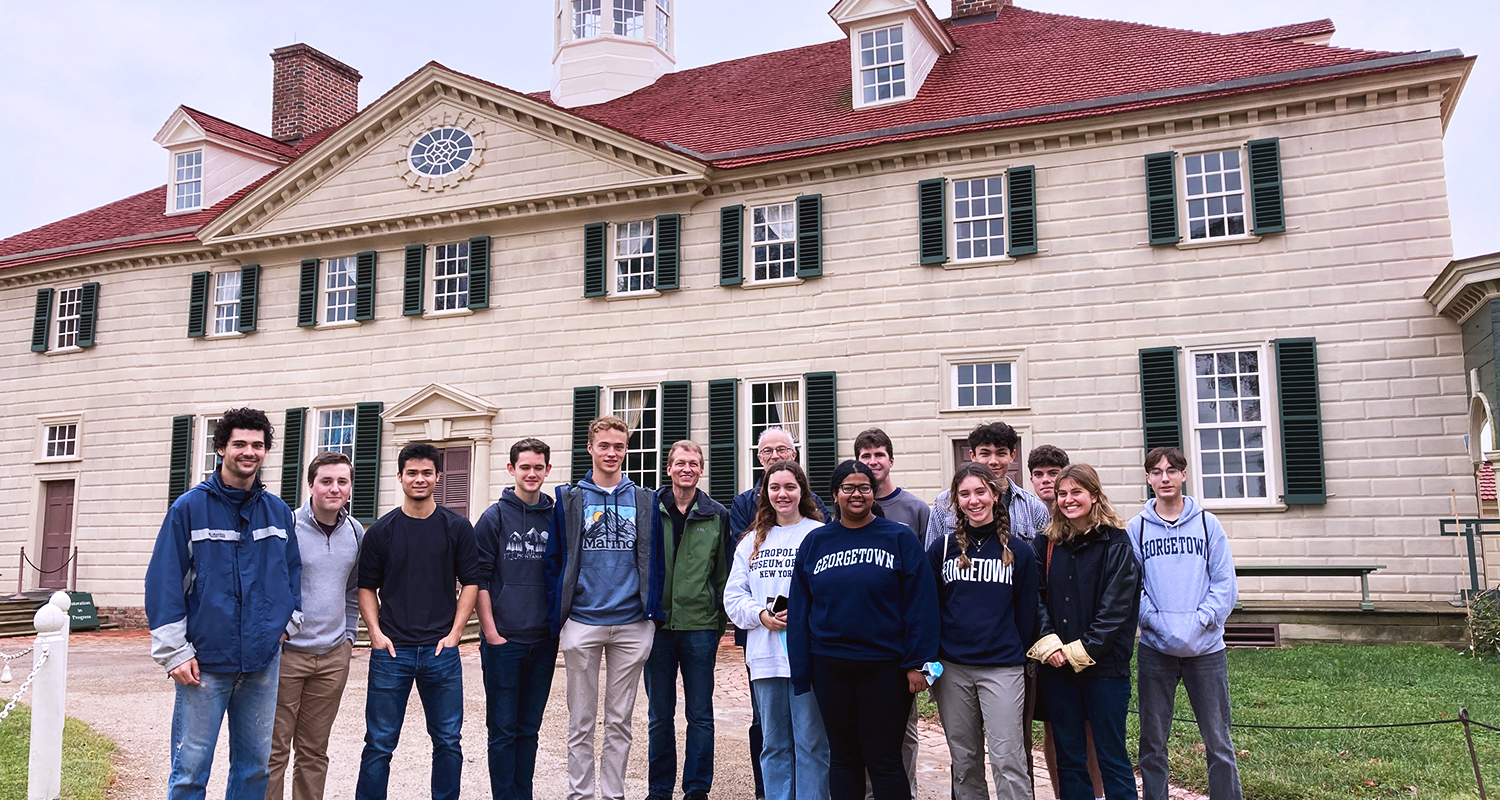
Features of First-Year Seminars
— Capped at 16-20 students per seminar
— Connect new students to a faculty mentor
— Introduce students to foundational academic skills
— Introduce students to the intellectual life of the university
— Include experiential learning activities
Fall 2025 First-Year Seminars
Ways of Knowing: Work
Who May Apply? All first-year students in the College of Arts & Sciences
Course/credit equivalencies: One 3-credit course
Requirements fulfilled: HALC: Humanities: Art, Literature & Culture; One American Studies major elective
Taught by: Sherry Linkon, Department of English
Course ID: AMST-1194-01
Work is not just how we earn a living. It shapes our lives. Through our work, we enact our values, navigate our identities, and build relationships. Work can be creative and fulfilling but also repetitive, unpleasant, and exploitative. And it has broad social implications. Work is embedded in and influenced by economic systems, social hierarchies, changing technologies, and cultural values. We all want to do “good” work, yet the work we do can also bring challenges and even have negative consequences for ourselves and others. In this seminar, we will explore the complexities of work by exploring some of what workers and people who study work have said about why it matters.
Because work plays such a central role in our lives, it has been an enduring theme for writers, artists, philosophers, journalists, and social scientists. As a “Ways of Knowing” seminar, this course will also explore how different ideas about work complement and contend with each other. We’ll encounter imaginative representations of work in literature and the arts as well as philosophical and theological arguments about the value and meaning of work. We’ll compare these approaches with sociological studies that highlight how work is changing and how it affects individuals, families, communities, and public life. We’ll also think more personally and reflectively, considering what we want from work, what constitutes “good” work for each of us, and how we can construct meaningful working lives.
About Sherry Linkon
As an American Studies scholar, I integrate literature, photography, media, history, and social structures and theories to study and teach about the complexities and conflicts of American life. I’ve written two books about how changes in work, especially the decline of the manufacturing economy, affect individuals and communities. That research has helped me understand how work helps people find meaning, construct identities, build relationships, resist exploitation and oppression, and navigate a changing, often conflicted world. My latest project focuses on how Black women are using fiction, drama, and photography to critique economic inequality and advocate for justice.
Ways of Knowing: The Humanities in the Medieval and Early Modern Worlds
Who May Apply? All first-year students in the College of Arts & Sciences
Course/credit equivalencies: One 3-credit course
Requirements fulfilled: HALC: Humanities: Art, Literature & Culture; One Music minor elective or one Classical Studies major or minor elective
Taught by: Anthony R. DelDonna, Department of Music; Justin Haynes, Department of Classics
Course ID: CASS-1400-01
This seminar will focus on Medieval and Early Modern works from the humanities, including literature (Dante, Ovid, Virgil), music (Monteverdi, Boulogne, Lully, Marianne Martines, Mozart), the visual arts (Bernini, Caravaggio), architecture, and related disciplines.
Students will read contemporary and historical scholarship to prepare for weekly discussions about key works and themes while also engaging the broader contextual topics of identity, rebellion, feminism, colonialism, enslavement, and religious practices (to name a few).
Students will develop critical-thinking skills and analytical tools through the close readings of sources, study of the selected historical works, and course discussions. This seminar will benefit students interested in learning more about the broader humanities (Classics, Medieval Studies, Music, and History among others) and interdisciplinary influences present within these fields. The class will make visits to area museums, attend concerts, and welcome guest speakers, among other activities.
About Anthony R. DelDonna
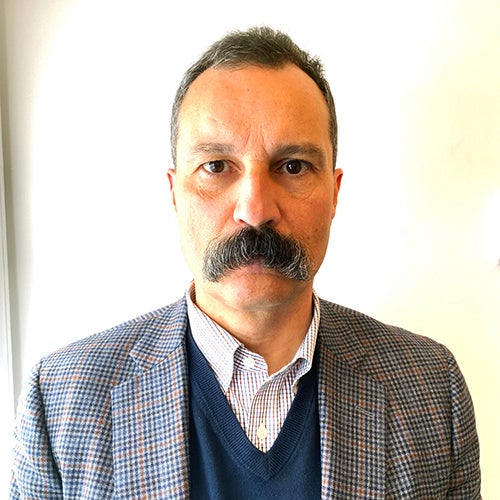
I am a Historical Musicologist and I study Italian music, musicians, and the broader artistic culture centered on the Kingdom of Naples in the early modern period. My specific interests include vocal genres (opera, oratorio, cantata), instrumental music, dance, and archival studies. I am especially interested in reviving lost masterworks and organizing performances utilizing historical instruments and concepts.
About Justin Haynes
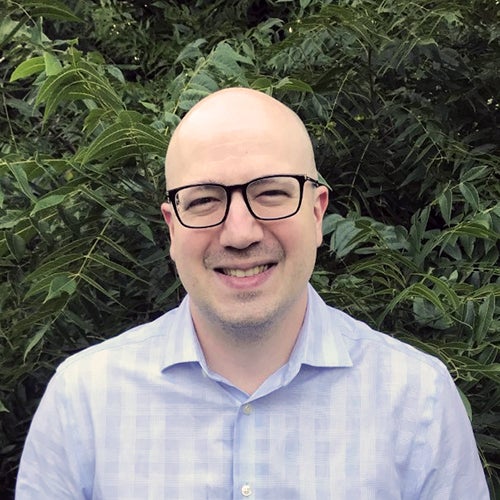
I study how classical authors, especially Virgil and Ovid, were understood and celebrated in medieval and early modern Europe. I am also a luthier and musician who regularly performs on the viola da gamba, and every summer I play cello in two or three classical and baroque opera productions.
Ways of Knowing: Telling the Truth
Who May Apply? All first-year students in the College of Arts & Sciences
Course/credit equivalencies: One 3-credit course
Requirements fulfilled: One Journalism minor course OR One American Studies major elective course
Taught by: Rebecca Sinderbrand, Journalism Program
Course ID: CASS-1400-02
This course will explore the way modern journalism works, the impact the news profession has on the world in which we live, and the challenges it faces in the current moment. It will provide an overview of the history, definitions, and practice of basic journalistic terms, routines, standards, and profit models in a conversation focused mainly on the U.S. tradition, while noting other cultural norms around reporting and information-sharing in other areas of the world.
Students will learn both in the classroom and well beyond it, with readings and discussions related to current events and industry developments, as well as special guests and field trips to provide insight into editorial decision-making and ethics in the nation’s most competitive newsrooms.
They will consider various views of journalism’s role and responsibilities in a democracy and its place in the evolving information ecosystem. And they will undertake experiential learning in multiple settings, from classroom activities, simulations, and analysis to independent real-world journalistic assignments.
About Rebecca Sinderbrand
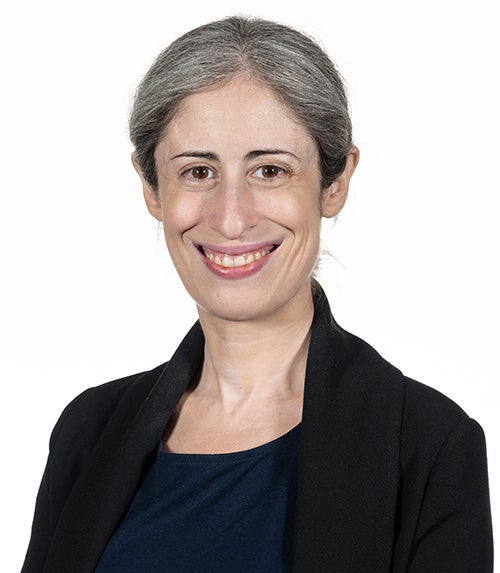
I grew up in Brooklyn, New York, where my father was a union electrician and my mother was a homemaker who had been – like her parents before her – a New York City public school teacher. My time as a Georgetown undergraduate set me on a path to a career in the newsroom, but family tradition runs deep, and my heart was always in the classroom. After more than two decades of full-time editorial experience – a professional journey that took me across the country and to the other side of the globe, reporting and managing major coverage for the nation’s leading news organizations, including CNN and The Washington Post – I’ve arrived back on the Hilltop, connecting with the next generation of aspiring journalists and news consumers as we try to understand how journalism works now, and perhaps develop ways it might better serve our world.
Ways of Knowing: Interreligious Encounter
Who May Apply? All first-year students in the College of Arts & Sciences
Course/credit equivalencies: One 3-credit course, One Theology major or minor elective
Requirements fulfilled: Theology (One of two; equivalent to a non-intro theology core course)
Taught by: Imam Yahya Hendi, Director for Muslim Life; Father Mark Bosco, S.J., Vice President for Mission & Ministry; Rabbi Ilana Zietman, Director for Jewish Life
Course ID: CASS-1400-03
In today’s world, it is evident that religious beliefs can be strong components of social and political change. Whether it be in the rise of Islamophobia, or the recurrence of antisemitism, or the legacy of Pope Francis and the new pontificate of Leo, religion and interreligious exchange must be recognized as a major influence on statecraft and politics.
This course will offer students the ability to see the role played by major religions in the West—Islam, Judaism, and Christianity—as well as how to understand what religions can say in dialogue with each other. Team-taught by an Imam, a Rabbi, and a Catholic Priest, Interreligious Encounter aims to equip the student with an understanding of other religions from within the perspective of their practitioners and the skills necessary to dialogue across religious boundaries.
About Imam Yahya Hendi
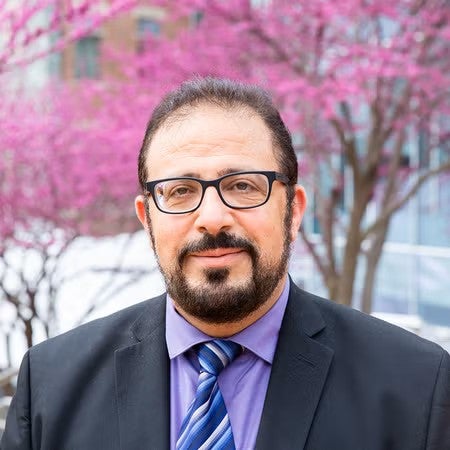
Imam Hendi has been at Georgetown for 25 years and was the first Muslim chaplain to be hired full-time by an American university. He is a Public Policy Conflict Resolution Fellow at the Center for Dispute Resolution at the University of Maryland School of Law and the Maryland Judiciary’s Mediation and Conflict Resolution Office. He is passionate about environmental responsibility, racial justice, eliminating poverty, fighting against the growing sense of militarism, and empowering Muslims to reform the way they practice and understand Islam.
About Rabbi Ilana Zietman
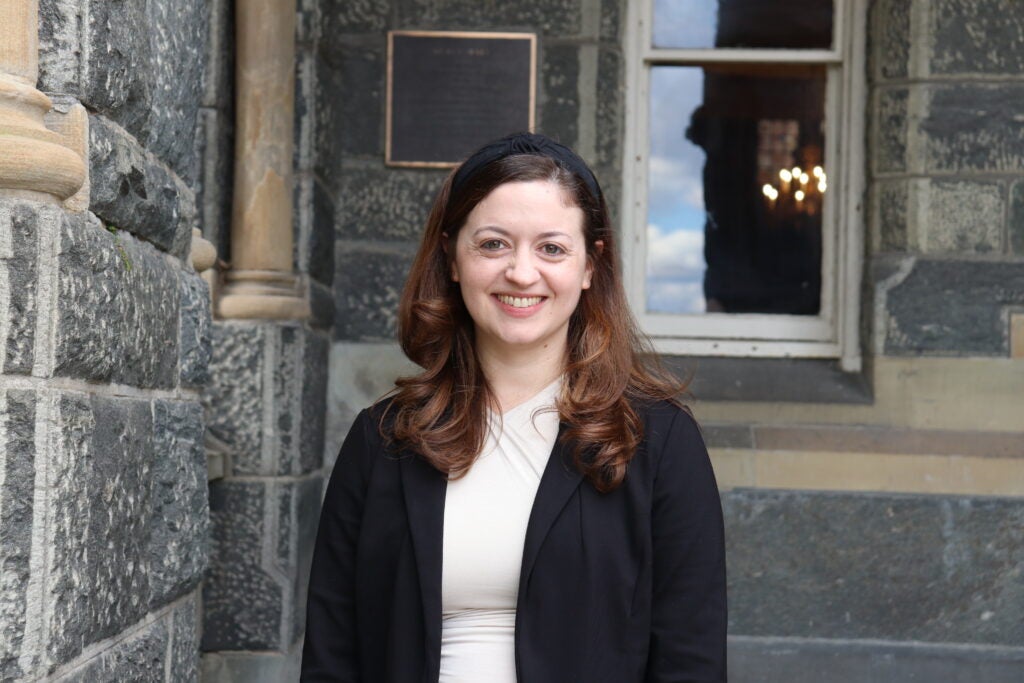
As Director for Jewish Life, Rabbi Ilana serves as chaplain to Jewish students across Georgetown University. She loves to create Jewish experiences and foster communities that are caring, thought-provoking, and—most importantly—welcoming. As Director of Jewish Life, Rabbi Ilana provides pastoral care, Torah study and Jewish learning, Shabbat and holiday prayer services, meals and other programs throughout the academic year. She is committed to helping each student foster a Jewish life that is rich in meaning, relevance, mutual support and joy.
About Father Mark Bosco, S.J.
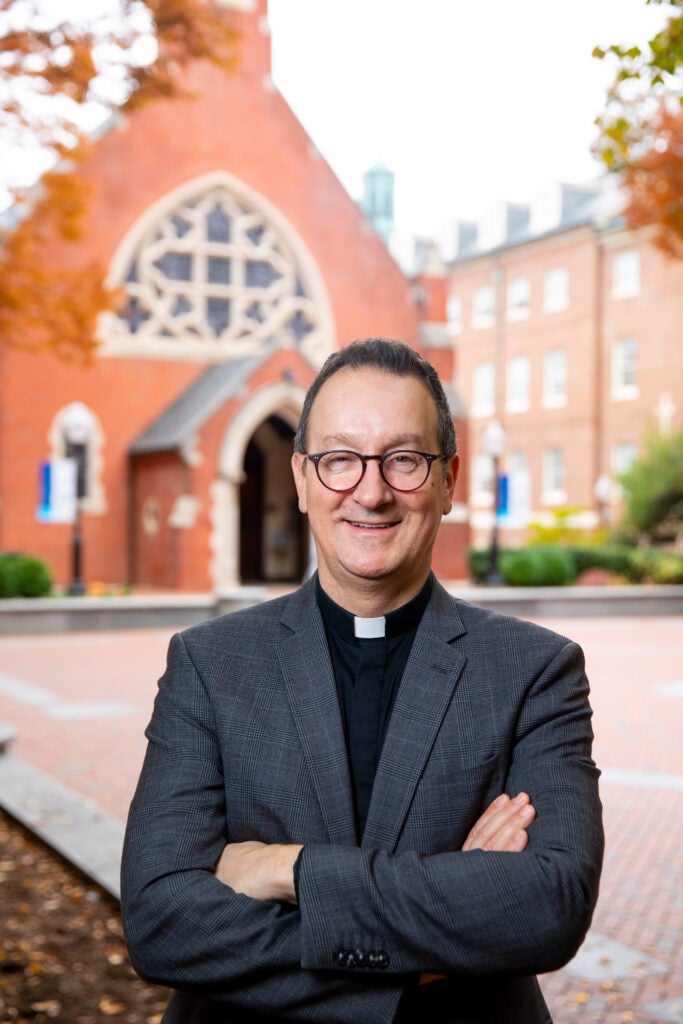
As Vice President for Mission & Ministry, Fr. Bosco shares the Catholic and Jesuit heritage of education and spirituality with faculty, students, staff, parents, and alumni through seminars, presentations, immersion programs, and retreats. A native of St. Louis, Missouri, Fr. Bosco came to Georgetown from Loyola University Chicago, where he was a tenured faculty member in the Departments of Theology and English. Fr. Bosco’s scholarship focuses on the intersection of theology and art—specifically, the British and American Catholic literary traditions.
Wyas of Knowing: The First Amendment
Who May Apply: All first-year students in the College of Arts & Sciences
Course/credit equivalencies: One 3-credit course
Requirements Fulfilled: Social Science (one of two in Government); One foundational course in the Government major or minor
Taught by: Joseph Hartman, Department of Government
Course ID: GOVT-1210-01
What do we mean when we refer to “free” speech? Does it include hate speech? What about offensive symbols? Commercial advertisements? Verbal threats? And even if we can begin to answer those questions, we might further ask: under what conditions can we even consider speech “free” in the first place?
These urgent problems occupy the heart of the U.S. Supreme Court’s First Amendment jurisprudence, which determines the extent to which the law requires protection of, inter alia, fighting words, obscenity, incitement, symbolic speech, commercial speech, and hate speech. This course provides students with a solid grounding in that jurisprudence. In so doing we will assess and examine the evolving tests, standards and approaches found in the decisions of the United States Supreme Court as well as the philosophical and theoretical foundations upon which these legal doctrines rest and upon which they are challenged.
About Joseph Hartman

More than a decade ago I initiated a significant career transition, leaving a full-time litigation practice to pursue an academic career. I arrived on the Hilltop as a first-year Ph.D. student in 2009—and I never left! My teaching now focuses on constitutional law and the history of political thought, interests I see as complementary; one might think of constitutional law as political theory put into legal terminology. That said, I recognize that many students may find the study of law unfamiliar, challenging, and even intimidating. I work to change that—and this shapes the course material and the educational climate I seek to foster: one of collaboration, trust, and active, engaged exploration.
Language and Cultures Seminar: Français Sans Frontières
Who May Apply? All first-year students in the College of Arts & Sciences who are new to the study of French
Course/credit equivalencies: One 3-credit course
Requirements Fulfilled: This course is the equivalent of Introductory French I, the first course toward completion of the core language requirement in French. To complete the requirement, students will need to continue their study of French through the intermediate level.
Taught by: Aaron Emmitte, Department of French and Francophone Studies
Course ID: FREN-1001-02
In Français Sans Frontières, students will learn the foundations of the French language while exploring the culture, history, politics, and present-day challenges of the French-speaking world. Through weekly lectures, active class discussions, site visits, and immersive activities with native Francophones from around the world, students will gain a profound appreciation for the global impact of the French language and for those who speak it.
The primary language objectives include: to introduce students to the basics of the French language, to teach students how to express themselves in French (both written and orally), and to help students develop their comprehension skills of written and spoken French.
This seminar’s cultural objectives include: to introduce students to the diverse history of the French-speaking world, to examine the role of France and the French language today, and to explore Francophone literature, art, cinema, and food.
About Aaron Emmitte
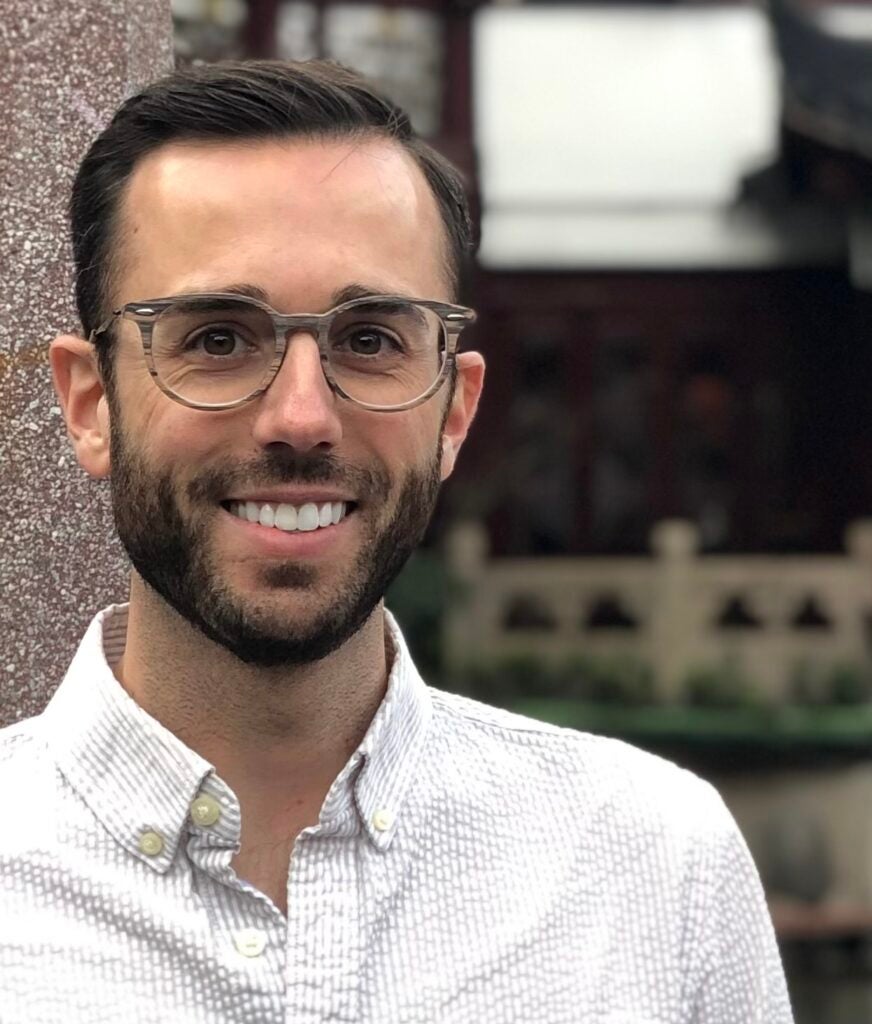
I first fell in love with French during a family trip to Paris following my high school graduation. The food, the culture, the architecture, and of course the beauty of the language itself—I knew at that moment that I wanted to learn French. So, my first year in college I decided to take Introductory French as one of my electives, and by the end of that year I was declaring my major. I then went on to earn my Ph.D. in French and Sociolinguistics. For over ten years now I have served as the Introductory French Program Coordinator at Georgetown, where year after year I delight in sharing my passion for this language with new students.
Language and Cultures Seminar: Giro d’Italia
Who May Apply? All first-year students in the College of Arts & Sciences who are new to the study of Italian
Course/credit equivalencies: One 6-credit course
Requirements Fulfilled: This is the first course toward completion of the core language requirement in Italian. To complete the requirement, students will need to take Intensive Intermediate Italian in a subsequent semester. One foundational course in the Italian major or minor.
Taught by: Louise Hipwell, Department of Italian
Course ID: ITAL-1011-01
This seminar is addressed to students with no prior knowledge of Italian and will provide a solid foundation in speaking, understanding, reading, and writing, as well as the opportunity to explore Italy’s vast cultural heritage. As students take this first step towards gaining proficiency in the language and culture, they will also engage in experiential learning activities such as a private tour of the Italian Embassy, visits to Italian cultural institutions in D.C., and a cooking class by a local
Italian chef.
During the course, students will learn how to use the Italian language for basic interactions of everyday life such as informal conversations, transactions in shops or tourist facilities, and in writing, through the composition of simple texts such as letters, messages, and brief essays on cultural topics. Beyond acquiring this practical knowledge of the language, students will engage with the country’s culture on a deeper level through a series of intercultural activities, readings and films, as well as conversations with guest speakers.
About Louise Hipwell
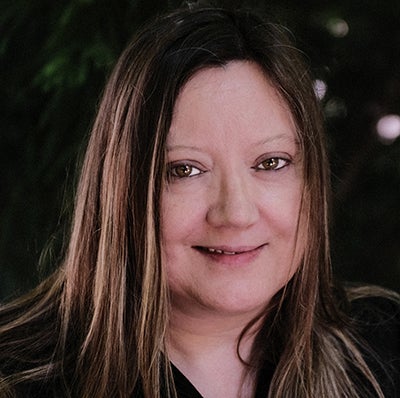
I was born in Wales and raised in a small town in southern Ireland, so my path to the Department of Italian at Georgetown has been a long and rewarding one. From an early age, I loved languages, studying Gaelic and French in school. In college, I had the chance to explore new areas of study and discovered a passion for Italian. Studying at the University of Bologna was a transformative experience that sparked a lifelong dedication to Italian language, literature, and culture. I believe learning a new language has the power to change lives, and it’s always exciting to help my students embark on their own journeys of discovery.
Hager Scholars Program in Literatures, Cultures, and Language Studies
Who may apply? All first-year students in the College of Arts & Sciences with an interest in a major, double major, or minor in a Language or Global Comparative Literature.
Fall Course/credit equivalencies: Intro to Biblical Literature (3-credits), Intro to Language (3-credits), Intro to Global Literature (3 credits), The Bantu Expansion or Early Africa (3-credits), Language course at your level (3-6 credits), Biweekly Colloquium (1-credit), Students in a 5 or 6-credit language course may elect to take one fewer course.
Fall Requirements fulfilled: Theology (one of two), Social Science (one of two in Linguistics), HALC: Humanities: Arts, Literature, and Cultures
Fall Course IDs: CASS-1450-01, THEO-1100-02, LING-1000-01, GCPL-1001-01, HIST-1099-36 OR HIST-1200-01
Spring course/credit equivalencies: Intro to Cultural Anthropology (3-credits), Love, Rage, and Melancholy Across Cultures (3-credits), Language course at your level (3-6 credits), Biweekly Colloquium (1-credit)
Spring Requirements fulfilled: Social Science (one of two in Anthropology), Pathways to Social Justice, History (one of two)*
*Hager Scholars should avoid enrolling in a history survey course or a general philosophy course in the fall, as those requirements may be completed through the program in the spring semester.
Named in honor of Dr. Serafina Hager, a long-serving Italian professor and dean, the Hager Scholars Program celebrates the strength and diversity of language study at Georgetown. In addition to a course in the language of their choice, Hager Scholars take a series of courses that fulfill core requirements, taught by faculty who are particularly interested in the ways that language study informs their fields.
Additionally, Hager Scholars will engage in a yearlong Colloquium organized around the theme of “Exploring the Migrant Experience through Language.” The biweekly, 1-credit Colloquium is designed to familiarize students with the tools and methods of academic and intellectual inquiry, as well as to introduce students to language faculty and their research interests.
Guided by the Colloquium Director, Professor Anne Thinglum, students will formulate their own research topics, ask questions, and articulate the challenges and triumphs they encounter as they embark on doing college-level research around themes that inspire them. The Colloquium will also expose students to cultural opportunities and outings in Washington and encourage them to explore opportunities available to language majors and minors in D.C. and beyond.
Ignatius Seminar: Social Justice and Solidarities
Requirements Fulfilled: One Black Studies major or minor course
Taught by: Dayo F. Gore, Department of Black Studies
Course ID: TBD
This seminar draws on archival research and historical methods to explore the ways everyday people and communities produced knowledge, claimed power, and forged solidarities to create powerful transformations in the United States. The course will study the solidarities that have fueled social justice movements in the long 20th century, including the abolitionist movement to end slavery, struggles for workers’ rights, the Civil Rights and Black Power movements, the Women’s movement, and the LGBT rights movement.
About Dayo F. Gore
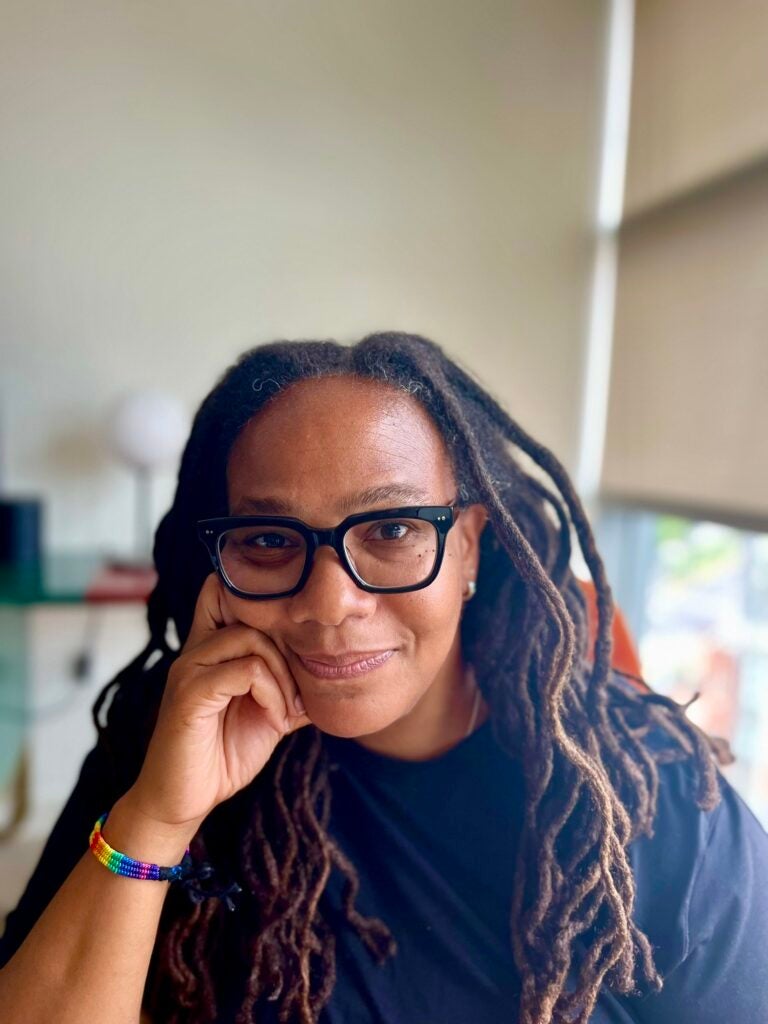
I was drawn to learning about the past by the stories my mother told of her experiences as a newly married southerner moving “North” in the 1960s and negotiating moments of profound historical change. These stories fueled my curiosity about the ways people and communities come together to create change and claim power in the face of large historical forces and led me to history and the interdisciplinary field of Black Studies.
Due to the instructor’s schedule, we will offer this seminar in Spring 2026 (as opposed to the rest of the Ignatius Seminars, which are Fall 2025 courses). Please apply for this course along with your other selections. If selected for this seminar, we will pre-enroll you in early November, and you will register for the rest of your Spring courses around this enrollment.
Ignatius Seminar: Becoming Modern
Requirements fulfilled: One half of the core history requirement for students with AP or IB history credit, or eligible international exam scores. One History major or minor elective.
Taught by: Tommaso Astarita, Department of History
Course ID: CASS-1491-20
This seminar focuses on the cultural and historical developments of Europe and its colonies in the eighteenth century, the era of the Enlightenment. By discussing together novels, plays, essays, images, and other sources, we will explore the remarkable changes that spanned Europe and its colonies in that era, and the new ideas about race, gender, science, politics, religion, culture, and art that emerged then and shaped our own time. Careful reading of texts, active class discussion, and close attention to writing will be central to our work.
About Tommaso Astarita
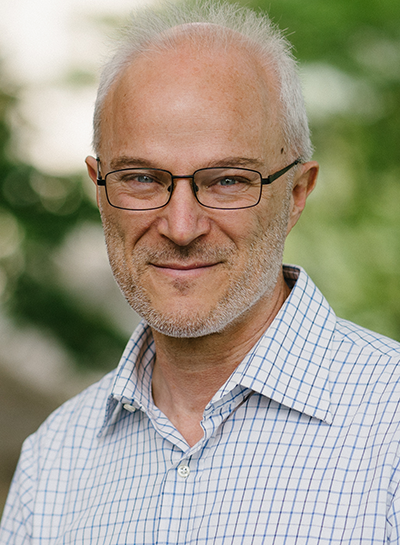
I grew up in Naples, Italy. My mother was a teacher and art historian and my father taught engineering at the University: from them I learned that teaching was both fun and challenging, and to love art and the history of culture. I came to the United States for graduate school and have been teaching ever since. I continue to enjoy interacting with smart young people, helping them develop their skills and interests, and learning from and with them. My own main interest is the culture and history of Western Europe between the Renaissance and the eighteenth century.
Ignatius Seminar: The Future of the Catholic Idea
Requirements Fulfilled: Theology (One of two; equivalent to a non-intro theology
core course). One Theology major or minor elective
Taught by: Paul Elie, Senior Fellow and Director of the American Pilgrimage Project
Course ID: CASS-1491-22
With a new pope in Rome, Catholicism faces an uncertain future. It will be global, vital, and controversial—but how? In this seminar, we answer the question together. After a session about current challenges to religion, we’ll consider the shifting emphasis given to Jesus through the ages; explore Catholic conceptions of truth, history, and social order; and turn to the lives of the saints and works of the Catholic imagination. Reflecting on communities from Benedictine abbeys to Catholic Worker houses, we’ll explore Catholic efforts for justice and prophecy. After three fall semesters—this one is the first—the course will culminate in a group trip to Rome.
About Paul Elie
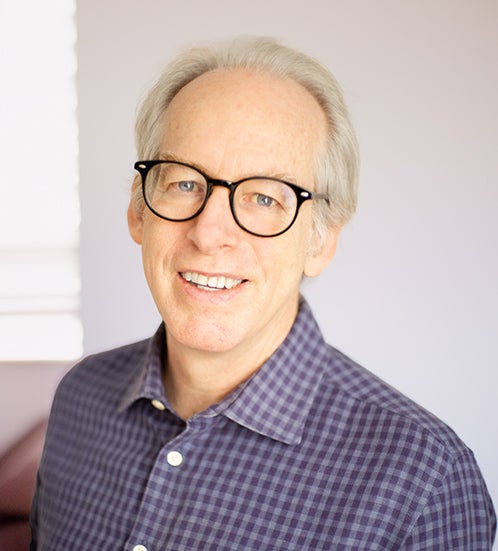
I was brought up Catholic, but it was through Jesuit education that my sense of Catholicism was deepened in ways I’ll never forget. That experience has shaped my work as an author (The Life You Save May Be Your Own), journalist (The New Yorker) and educator, and I see this Ignatius Seminar as an opportunity to “pass it on” and to learn from students as I do.
Ignatius Seminar: Evolution in Daily Life
Requirements fulfilled: Science for All
Taught by: Jennifer Fox, Department of Biology
Course ID: CASS-1491-01
In this course, we will explore evolutionary mechanisms to understand how they have shaped many aspects of our daily lives, such as our health, the foods we eat, the pets in our homes, and our relationships with each other. We will also discuss how we can apply these ideas to understand current problems, like emerging diseases or antibiotic resistance, and to prevent future ones.
About Jennifer Fox
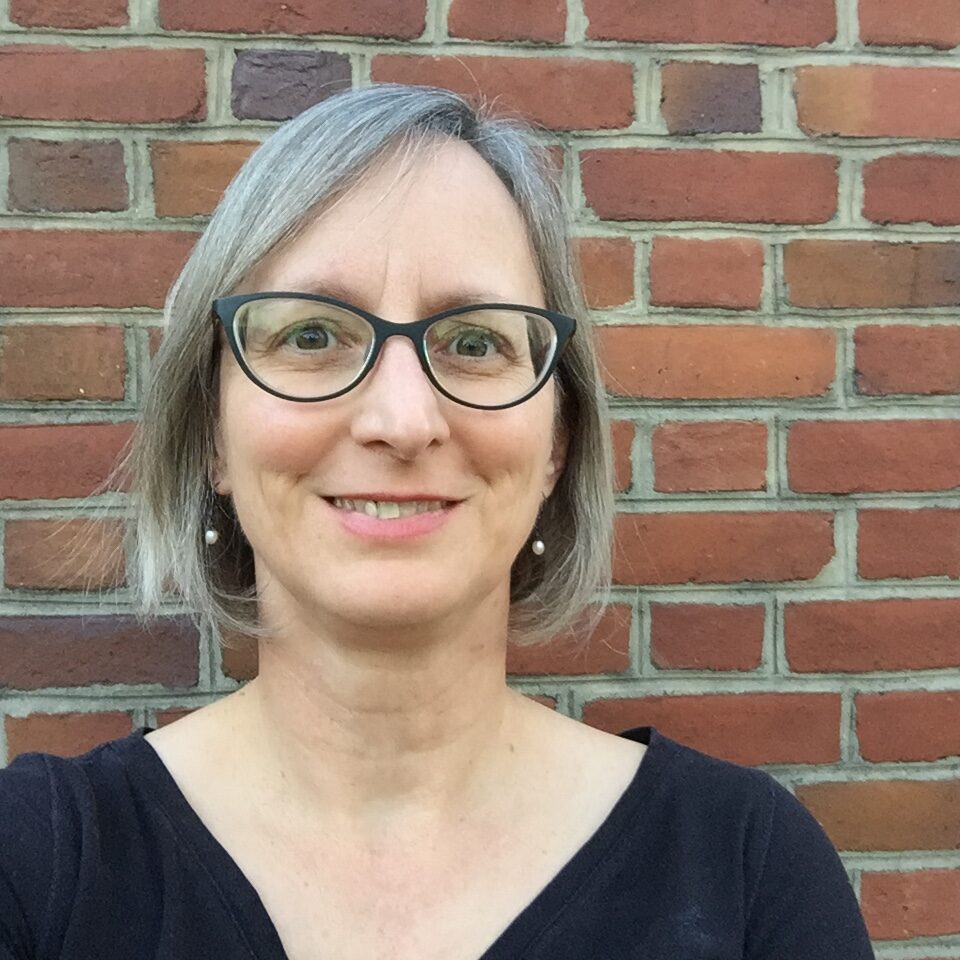
My fascination with evolution grew out of interests in science and history; evolution marries these disciplines. Studying evolution has sent me on many adventures – I’ve time-traveled into the past and been to incredible places like the bottom of the most polluted lake in the US, the New Zealand and Swiss Alps, and the Peace Corps in Kazakhstan. My desire to share the grandeur of evolution in particular and biology in general led me to teaching. At Georgetown, I teach courses about evolution, ecology, and environmental issues.
Ignatius Seminar: Five Minutes That Will Make You Love Jazz
Requirements fulfilled: One half of the core history requirement for students with AP or IB history credit, or eligible international exam scores. One History major or minor elective.
Taught by: Maurice Jackson, Department of History
Course ID: CASS-1491-02
This course will use the New York Times series, “5 Minutes to Make You Love Jazz” to study the history of jazz, jazz masters, and American culture. In the New York Times series, musicians, music critics, and historians survey the music and the history of different musicians: their origins, birth cities, and more. In our course, we will explore Louis Armstrong, Ella Fitzgerald, Shirley Horn, Miles Davis, and John Coltrane. We will walk along their musical journeys and the history of their times and music. We will study themes such as the jazz piano, jazz bass, and tenor sax. We will look at South African, Brazilian, and Cuban, Jazz and Black musicians, who moved to France and other European ports seeking to get away from discrimination in the United States. Each week will be divided into two parts with one day of music-listening and one day of discussion around New York Times articles and various assigned readings.
About Maurice Jackson
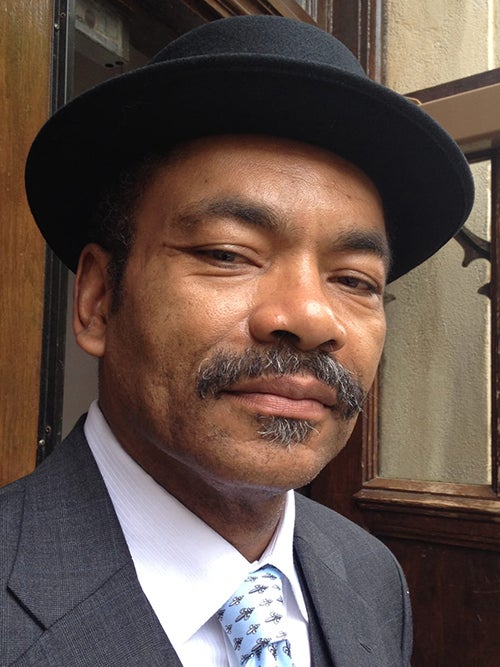
Before coming to academe, I worked as a longshoreman, shipyard rigger, construction worker, and community organizer. I am the author of Rhythms of Resistance and Resilience: How Black Washingtonians Used Music and Sports in the Fight for Equality and Let This Voice Be Heard: Anthony Benezet, Father of Atlantic Abolitionism. My next book, Halfway to Freedom: The Struggles and Strivings of African Americans in Washington, DC., will be published in 2026.
Ignatius Seminar: Human Flourishing: East and West
Requirements Fulfilled: Theology (One of two; equivalent to The Problem of God), One Theology major or minor elective.
Taught by: Erin Cline, Department of Theology and Religious Studies
Course ID: CASS-1491-03
From the sages and philosophers of the Confucian, Daoist, and Buddhist traditions to those of the ancient Greek, Christian, and Jewish traditions, we will travel the world through some of the greatest texts ever written in search of what human flourishing meant not only throughout human history, but what it means for us today.
About Erin Cline
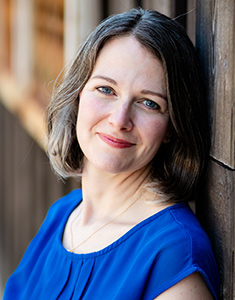
I grew up on the beaches of Homer, Alaska, the daughter of a cultural anthropologist and a music teacher. A love of bluegrass and traditional Irish music originally led me to major in music in college. But after studying abroad in China, my fascination with ancient Chinese texts led me to graduate school to study Chinese and comparative philosophy. My five books all explore how Asian philosophical and religious traditions can help us respond to a variety of contemporary challenges and engage in dialogue with different traditions and cultures. My translation of the ancient Chinese text, the Confucian Analects, and my latest book, The Problem of God (based on Georgetown’s iconic course, which I’ve taught for the last sixteen years), will both be released later this academic year.
Ignatius Seminar: Black Women’s Friendship in the Archive
Requirements Fulfilled: HALC: Humanities: Art, Literature & Culture, One Black Studies major or minor course
Taught by: Soyica Colbert, Interim Provost and Idol Family Professor in Black Studies
Course ID: CASS-1491-04
This seminar will explore how relationships form in the unremarkable moments that turn getting to know someone into expecting something from someone. Through being together, friends deepen each other’s consciousness. The course will consider how to locate these everyday moments that contribute to an individual’s life story. In addition, the course will include one or more of the following activities: a trip to the Library of Congress and engagement with cultural productions or museum exhibits this fall.
About Soyica Colbert
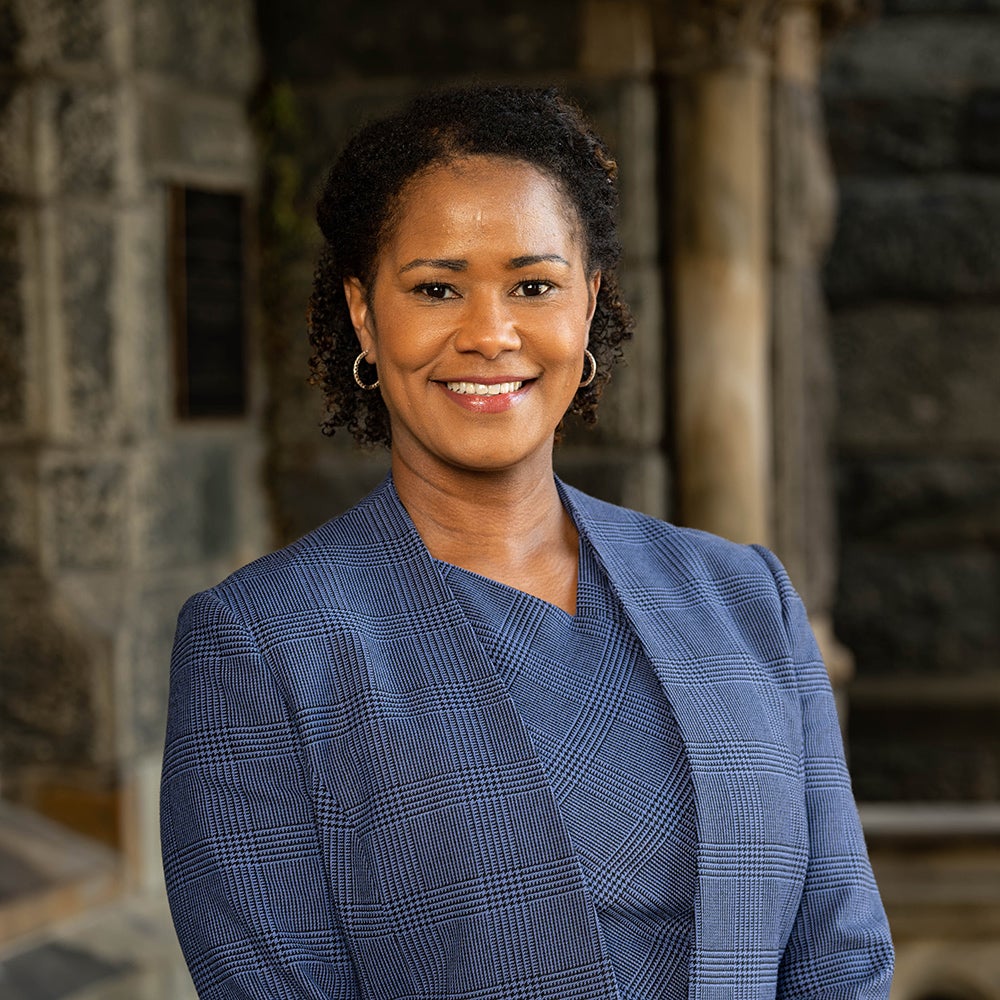
I grew up in Willingboro, NJ. My junior year in high school, I first set foot on Georgetown’s campus and knew immediately it could be my second home. Later during my sophomore year at Georgetown, I realized I had come to college to become a scholar and a teacher. Now, I am the Interim Provost and Idol Family Professor at Georgetown University. My most recent book, Radical Vision, was described as “A devoted and deeply felt account of the development of an artist’s mind,” according to Dave Itzkoff, of The New York Times. My writing has been featured in The New York Times, The Washington Post, Public Books, and American Theatre.
Ignatius Seminar: Identity-Affirming Education as a Tool for Educational Justice
Requirements Fulfilled: Core course in Education, Inquiry, and Justice minor, Pathways to Social Justice
Taught by: Sabrina Wesley-Nero, Program in Education, Inquiry, and Justice
Course ID: CASS 1491-18
Book bans. CRT bans. Core curriculum standards. What constitutes essential knowledge and who should have the power to define it? How might inclusive and diverse curricula impact educational justice? By analyzing historical and contemporary movements to define the knowledge(s) taught in schools as well as research and theory related to identity-affirming curricula, students will explore the complexities of power, identities, and agency. As part of the course, students will (1) evaluate their educational experiences, (2) collect data on and learn from the educational experiences of others, and (3) engage in design thinking to create a plan for an identity-affirming, effective undergraduate learning pathway.
About Sabrina Wesley-Nero
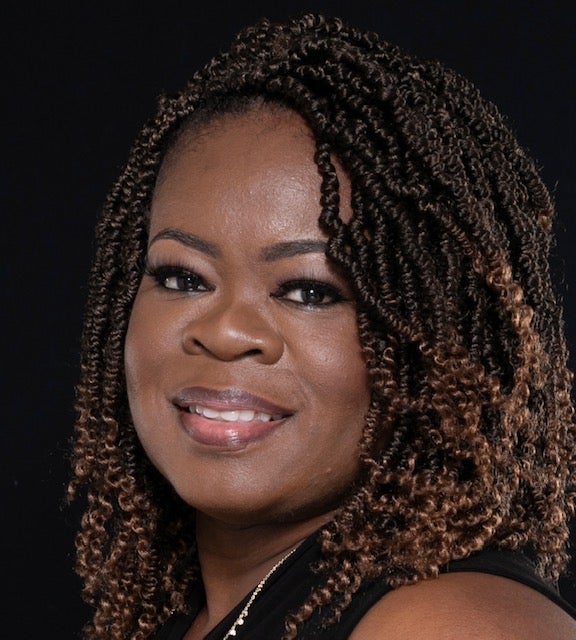
Born and raised in northwestern Florida, I first came to Georgetown as a first-generation, low-income college student. Now I’m back on the Hilltop on the other side of the podium teaching courses at the nexus of education and social justice. My research examines race and language in education, focusing on how educators and students from marginalized identities experience educational justice.
Ignatius Seminar: Augustine’s Confessions
Requirements Fulfilled: General Philosophy
Taught by: Thomas Williams, Department of Philosophy
Course ID: CASS-1491-06
For a thousand years and more of Western Christianity, Augustine was a theologian of unrivaled importance. To a remarkable degree, Christians even to this day—whether they realize it or not—think Augustine’s thoughts and draw up battle lines around Augustine’s controversies; theologians still wrestle with his understanding of the nature of God, of grace, of providence, of sin and the remedy for sin. But one need not share any of his theological beliefs to find Augustine well worth reading. In this seminar we will read all of Augustine’s Confessions (alongside selections from some other works of Augustine) with a view to understanding its spiritual power, its literary structure, its historical significance, and its theological and philosophical messages.
About Thomas Williams
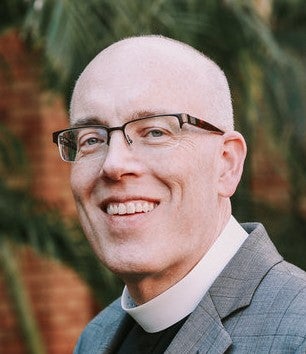
Over a thirty-year career, the work I am most proud of is my translation of the Confessions (Hackett, 2019). To me it is evidently both a work of scholarship and a work of devotion, though, as Augustine says, “Others will have to see for themselves what they think.” I joined the faculty at Georgetown as Martin Professor of Medieval Philosophy in 2022. My recent work includes Anselm: A Very Short Introduction and Augustine’s Confessions: A Critical Guide.
Ignatius Seminar: Witches
Requirements fulfilled: One half of the core history requirement for students with AP or IB history credit, or eligible international exam scores. One history major or minor elective.
Taught by: Alison Games, Department of History, and Amy Leonard, Department of History
Course ID: CASS-1491-07
What is a witch? This seminar engages this question in a wide-ranging exploration of the phenomenon of witchcraft in Europe, Africa, and the Americas over the course of several centuries. It looks at witchcraft both as a set of practices and beliefs and as something that could be transformed into a crime by changing ideas and by cultural collisions.
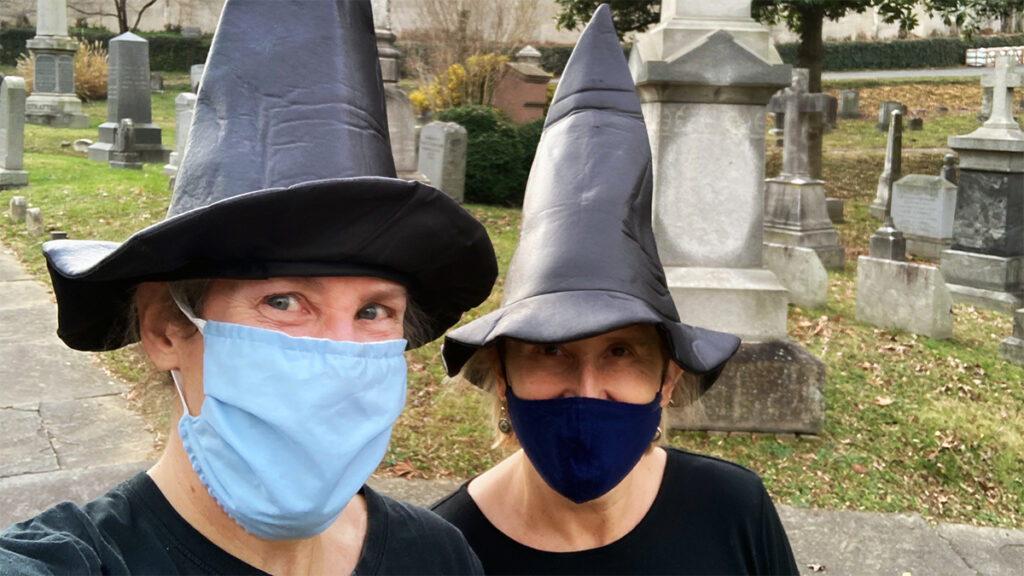
About Alison Games
I have taught History at Georgetown since 1995. My interest in the history of witches and witchcraft began with children’s books and excursions to Salem, but my knowledge and expertise have fortunately matured since then. I research and write about different aspects of the early modern world, including migration, colonization, violence, witchcraft, and empires, and I have been active in developing the field of Atlantic history at Georgetown.
About Amy Leonard
I have taught European history at Georgetown since 1999. I research and teach about women, gender, sexuality, nuns, Germany, and the Reformation. My Eurocentric focus on witches and their persecution has been forever broadened and altered by teaching with Professor Games, to the benefit (I hope) of generations of students.
Ignatius Seminar: Writing, Art and Silence
Requirements Fulfilled
HALC: Humanities: Art, Literature & Culture: One Theater and Performance Studies major or minor elective, or One English major or minor elective
Taught by: Christine Evans, Department of Theater and Performance Studies
Course ID: CASS-1491-08
We live in a noisy, anxious world. Here, we slow down to explore a new approach to creative writing. Through a combination of structured silent writing time, meditative techniques, and visits to view visual and performing arts, students will complete one open-genre creative project, and learn how to develop their writing as a technology of thinking, rather than as a transcription of ideas.
About Christine Evans
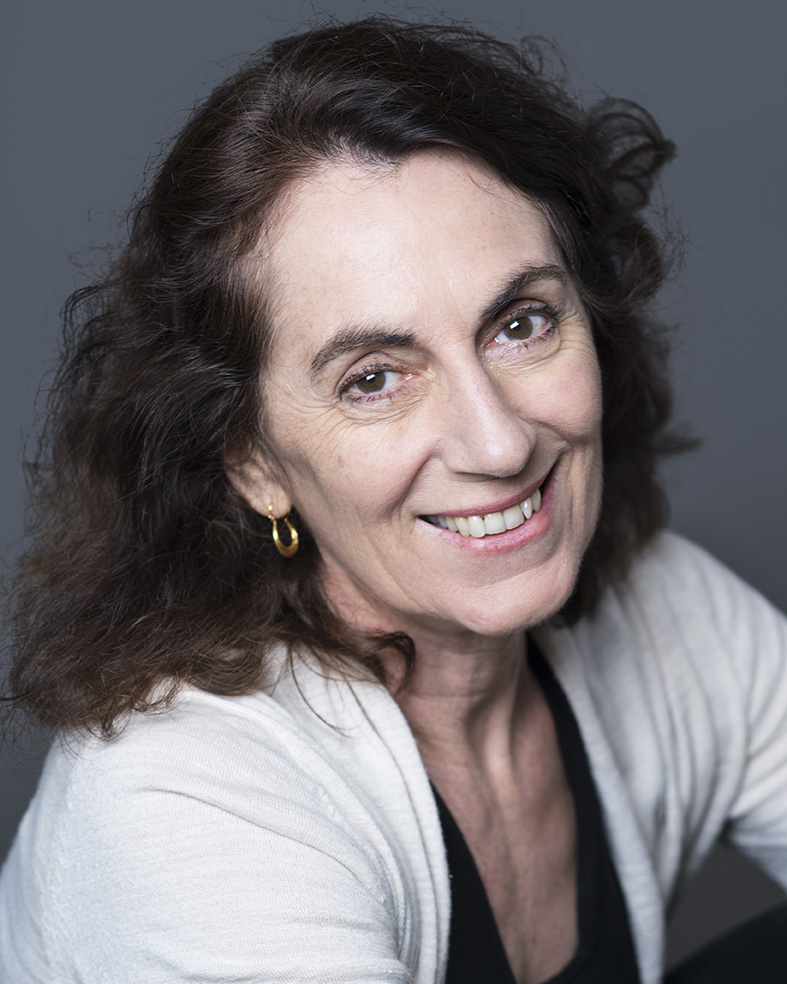
I’m Australian, grew up in three different countries, and began my artistic life as a traveling musician. Now I write plays, opera libretti and novels: the common thread is socially engaged topics through a poetic and feminist lens. I’m inspired by what silence, contemplation, and cross-art-form practices can offer, in both my own writing practice and my teaching.
Ignatius Seminar: How to Make a Decision
Requirements Fulfilled: Theology (One of two; equivalent to The Problem of God), One Theology major or minor elective
Taught by: Peter Folan, S.J., Department of Theology and Religious Studies
Course ID: CASS-1491-09
For many of you, matriculating at Georgetown was a big decision, maybe the biggest decision of your life. But it won’t be the last. Indeed, other decisions, even more significant decisions, are already on the horizon. Join me if you want to think about how you will make them. Texts and films from academic disciplines as varied as theology, literature, and business will be the foundation of our semester-long conversation. And that conversation will expand beyond the classroom with a series of daylong “Decision Labs” in the neighborhoods of Washington, DC. Whether you participate in only one, some, or all of those labs…is your decision.
About Peter Folan

I am a Catholic priest and theologian who, like you, has been making some good, some bad, and mostly routine decisions for a long time. But I am also a Jesuit, which means that my “family” has been thinking about decision-making for nearly 500 years. I look forward to sharing with you what the family has taught me.
Ignatius Seminar: ImagiNATIVE Activism
Requirements Fulfilled: Pathways to Social Justice, HALC: Humanities: Art, Literature & Culture
Taught by: Milena Santoro, Department of French and Francophone Studies
Course ID: CASS-1491-10
ImagiNATIVE Activism explores Indigenous identities and experiences in North America, with a focus on texts, films, and music by and about Indigenous people that manifest their knowledge, land stewardship, creativity, and activism in the face of injustice. Enrichment opportunities include visiting the National Museum of the American Indian, meeting Indigenous creators and scholars, and attending Native American Heritage Month events.
About Milena Santoro
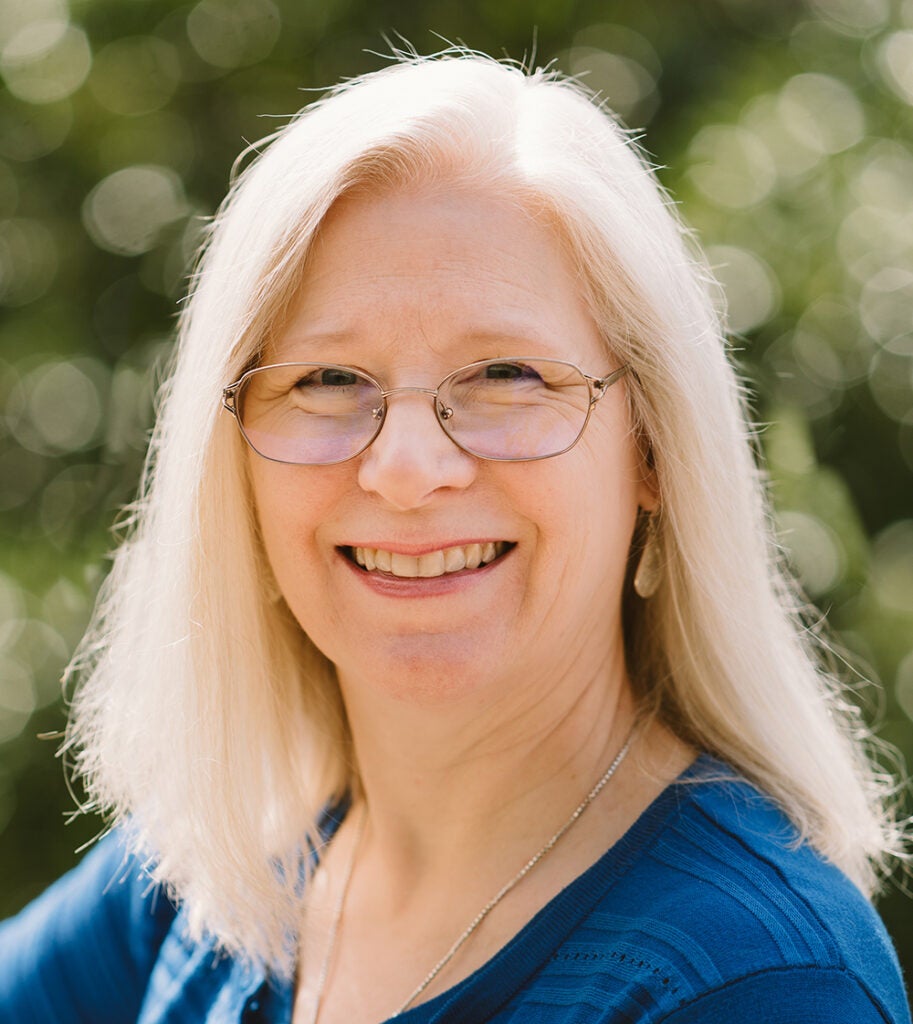
I grew up on Canada’s west coast, a region rich in First Nations history and cultures. My research into Quebec’s film and literature, as a Francophone scholar, got me interested in Indigenous filmmakers and writers from the province, some of whom have visited my classes. I am currently collaborating on a special journal issue on French-language Indigenous writing in Quebec.
Ignatius Seminar: Equality of Educational Opportunity
Requirements Fulfilled: Social Science (one of two with Sociology), Pathways to Social Justice
Taught by: Karolyn Tyson, Department of Sociology
Course ID: CASS-1491-19
Most of us are familiar with the 1954 Brown v. Board of Education decision. Some of us may have even celebrated or acknowledged the anniversary of the decision in our schools or communities in the past. But how much do you really know about this historic case?
Using a sociological lens that challenges us to consider the social forces that shape our institutions and everyday experiences, this course provides an opportunity for you to explore those questions through existing research, documentary films, guest lectures, local exhibits, and your own original research on the K-12 educational experiences of your peers.
About Karolyn Tyson:

I took a psychology course in high school and I was captivated by the readings and discussions on human behavior and the mind. I was sure I would major in psychology in college. But once I was introduced to sociology, everything changed. Sociology helped me to make sense of the world around me and gave me tools to ask and answer questions that interested me, especially on topics of social inequality, stratification, and race. I felt empowered. I became a sociology professor because I wanted to give students the same sense of wonder and curiosity that drew me to sociology as I discovered new knowledge about the social world and new ways of viewing it.
Ignatius Seminar: Discovering Culture Through Language
Requirements Fulfilled:
Humanities: Arts, Literature, and Culture (HALC)
Pathways to Social Justice
One Anthropology major or minor elective
Taught by: Sylvia Önder, Department of Anthropology
Course ID: CASS-1491-12
This course will examine the myriad ways that language use can shed light on the most human of activities – the making, shaping, and breaking of culture. We will read works translated from several languages, examine controversies about diverse forms of American English, experience the visual language of American Sign Language (ASL) through a visit to Gallaudet University, and, by examining archival documents, consider what is lost when a language goes extinct.
About Sylvia Önder

I came to Georgetown in 1998 to teach Turkish language and culture, after writing a dissertation about the healing practices of rural women on the Black Sea Coast of Turkey. Over the course of my time here on the Hilltop, I have come to appreciate the connection between local social justice movements and transnational political concerns. I look forward to sharing insights I have formed while studying and teaching the Turkish language, as well as anthropological insights about the constructed nature of culture and how humans act through and are acted upon by language.
Ignatius Seminar: Borders
Requirements Fulfilled: HALC: Humanities: Art, Literature & Culture, Pathways to Social Justice
Taught by: Nicoletta Pireddu, Director of Georgetown Humanities Initiative
Course ID: CASS-1491-13
Through literary works, movies, and art from all over the world, we will address the multifaceted role of borders in the construction of individual and collective identities, and the relationship between self and other. We will explore borders as bulwarks and sites of conflict, but also as spaces that negotiate differences. Border crossing will be our pedagogical tool, as we step into the other’s shoes. Last but not least, we will cross the borders of our classroom for cultural field trips and culinary experiences — Italian… and, of course, beyond!
About Nicoletta Pireddu

I grew up between the snow-capped Alps and the turquoise Tyrrhenian Sea, with a Sardinian last name and a Venetian accent, trying to fit in to both regional cultures but fully belonging to neither. This is probably how I developed an interest in borders and in the power of literatures and languages to cross them. From Italy to the UK, France, and the US, my academic journey is an ongoing adventure that allows me to continue exploring the complexity of identity and the enrichment of cultural exchanges, with my students and in my research.
Ignatius Seminar: Randomness, Chance, and Probability
Requirements Fulfilled: Free Elective
Taught by: Erblin Mehmetaj, Department of Mathematics and Statistics
Course ID: CASS-1491-14
It’s been shown that when faced with uncertainty and imperfect information, people’s intuition is ill-suited for making good judgments and decisions. In this course, we will read Leonard Mlodinow’s general audience book The Drunkard’s Walk, which is filled with historical accounts and lots of examples from different areas of human affairs, where something that seemed so obvious was so wrong. Experts have been famously wrong many times. To understand randomness and make better decisions in the face of uncertainty, what is needed is an understanding of the basic laws of probability and a lot of experience. In this course, we will attempt both. This course is designed for students who are interested in the topic, but who do not plan to major or minor in mathematics or statistics.
About Erblin Mehmetaj

I was born and raised in Kosovo. At 15, I attended a summer camp in Maine where I learned for the first time about the liberal arts education. It really spoke to me and so I made it my goal to come to the US for college. At 18, I moved to New York for college with a political science major and a pre-med minor. Then one day, my Calculus II professor told me I should consider majoring in math because I was good at it. I didn’t want to major in math because I didn’t want to be a teacher. (My mom was a teacher. My grandfather was a teacher. My great-grandfather was a teacher.) I decided to major in finance and minor in math. During the fall semester of my senior year, as I was studying abroad at a business school in Switzerland and taking master-level finance courses, I realized that things in my finance courses always seemed to boil down to math. So, I decided to apply to Ph.D. programs in math from abroad. I moved to DC for my Ph.D. and never left. In the end, just like my mom, grandfather, and great-grandfather, I also became a teacher!
Ignatius Seminar: Dante’s Afterlife in Popular Culture
Requirements fulfilled: HALC: Humanities: Art, Literature & Culture, One Global Medieval Studies major or minor elective
Taught by: Francesco Ciabattoni, Department of Italian
Course ID: CASS-1491-15
This course is a close reading of Dante Alighieri’s Divine Comedy and its persistence in later literature and popular culture. Students will learn about Dante’s most extraordinary journey, from the pit of Hell to the heavenly vision of God. Critical discussion (individual and in group), as well as written assignments and trips to Dantean places in town will be the core of the course.
About Francesco Ciabattoni
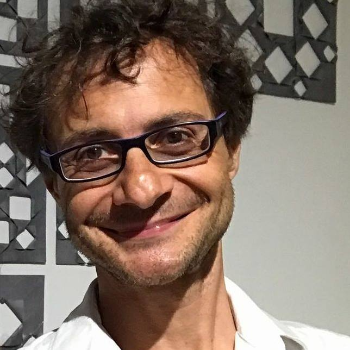
Born and bred in Italy, I moved to the US to study literature. My scholarly interests range from the Middle Ages to twentieth-century literature, with emphasis on the relationship between literature and music. At Georgetown I developed a bilingual website about Italian songs (www.theitaliansong.com) and dedicated my efforts to teaching Italian culture and medieval studies.
Ignatius Seminar: Creating and Making: The Moral Craft of Life
Requirements Fulfilled: Humanities: Arts, Literature, and Culture (HALC)
Taught by: Michael Kessler, Associate Professor of the Practice, Moral and Political Theory, Department of Government
Course ID: CASS 1491-16
This Ignatius Seminar explores philosophical and theological visions of craft, labor, and creativity. It examines their connections to moral and political life as a way to think about how our laboring, crafting, and creating is a fundamental part of what constitutes the good life.
About Michael Kessler
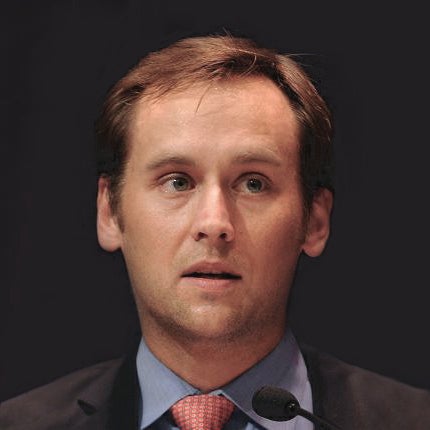
I grew up in the cornfields of Indiana, in a small community of craftspersons and tradespeople. Our self-reliance was a way of life—we built and made things and we made ourselves and our community through that making. Even while I pursued study in theology, ethics, political theory, and the law, I kept building and making, and trying to resolve the tension between what Aquinas called the active and contemplative lives. As an ethicist working with the theological and philosophical traditions of the West, I think about what it means for humans to build their world and pursue the good life in and through these gardening, woodworking, culinary, and construction projects.
Ignatius Seminar: Disability, Culture, and Question of Care
Requirements Fulfilled: Humanities: Arts, Literature, and Culture (HALC), Pathways to Social Justice, Core course in the Disability Studies minor or one English major or minor elective
Taught by: Libbie Rifkin, Department of English; Program in Disability Studies
Course ID: CASS 1491-17
This course will introduce you to Disability Studies, an interdisciplinary field premised on two powerful ideas: that disability is a fundamental aspect of all human experience and that disability has produced a range of identities and communities that merit exploration and celebration. Together, we will examine the role that disability plays in our lives and our culture through the particular lens of care. Individually and as a group, students will critically explore relationships of “care” in the family and in a variety of institutions, from Georgetown to other schools, prisons, congregate care facilities, mutual aid and healing justice collectives, and arts communities.
About Libbie Rifkin
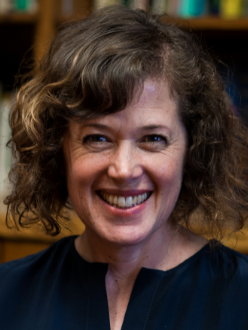
I teach in the Department of English and the Program in Disability Studies, and for most of my career worked as a scholar of modern and contemporary poetry. I came to the field of Disability Studies when my son was born with cerebral palsy because I wanted to understand both his experience and the way our family, and my own sense of identity, changed because of it. I currently support the University’s efforts to make Georgetown fully inclusive of people with disabilities by serving as the first Special Advisor to the Vice President of Diversity, Equity, and Inclusion for Disability.
Ignatius Seminar: Creative Drawing Techniques
Requirements Fulfilled: Humanities: Arts, Literature, and Culture (HALC), One Studio Art major or minor elective
Taught by: Scott Hutchison, Department of Art and Art History
Course ID: CASS-1491-05
Drawing at its core is a form of creative expression and visual storytelling. In this seminar, students of all levels will explore its rich history through the use of a diverse array of materials, techniques and subject matter.
Through in person demonstrations, museum visits and presentations of artists from differing backgrounds, students will learn various aesthetic approaches. This course aims to foster a unique setting in which students learn from one another by drawing together, sharing their art and discussing their work in an open and collaborative environment.
Through this shared experience, students may discover a deep appreciation for the visual arts through drawing.
ABOUT SCOTT HUTCHISON
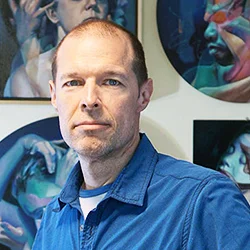
Do you remember the first piece of artwork that moved you? Whether it was an oil painting, a movie or a piece of music – the impact can be long lasting and real. For me, it was Francis Bacon’s Study after Velasquez’s Portrait of Pope Innocent X (1953) at Des Moines Art Center. I was only twelve at the time, but after forty years I still strive for the same reaction I felt then in my own artwork. I am a figurative painter and describe my current work as complex layers of half-truths. Inspiration for my work comes from the notion that our conscience is guided by our experiences and the limitless decisions we make each day.
Ignatius Seminar: Magis: The Real Metaverse
Requirements Fulfilled: Theology (One of Two; Equivalent to The Problem of God), One Theology major or minor elective
Taught by: Paul L. Heck, Department of Theology and Religious Studies
Course ID: CASS-1491-11
This course is designed to help students understand religion in light of the magis, a Jesuit term that means “the greater good.” Throughout, we will pursue course topics in light of today’s current crises (from climate to opioids to inequality) to garner perspective on the way religion is deeply invested in the needs of society.
About Paul Heck
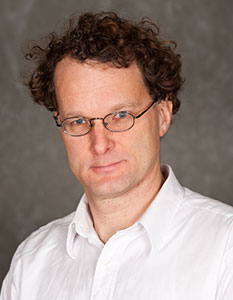
I finished my doctorate in religion just as 9/11 happened. The story of the century made heavenly devotion seem crazy, but I had to explain why it’s a good thing. What I’ve realized after twenty years of research and reflection is that all human experience, rightly discerned, is religious, drawing us into a goodness that lies beyond policy-making. I now bring my insights to the wider university, heading a new major in Theology on Religion, Politics, and the Common Good (RPCG), advancing the Theo-Humanism Project (THP), and teaching an Ignatius Seminar on the workings of goodness in both soul and society, goodness—not the metaverse—as the really real.
Ignatius Seminar: Black Social Media and Networks
Requirements Fulfilled: One Black Studies major or minor course, or One Anthropology major or minor elective, or One Tech, Ethics, and Society minor elective
Taught by: Brienne Adams, Department of Black Studies
Course ID: CASS-1491-21
What is your favorite social media platform and why? We will answer these questions and more to examine how Black knowledge production, culture, usage, and inventiveness shape and are shaped by the platforms we use every day. Tracing the usage of chat rooms and blogging to the proliferation and popularity of hashtags and video production, we will plot an arc of Black social media practices that impact personal, political, and societal issues. Through a myriad of Black centric multimedia and DC cultural events, we will explore social media’s infrastructure and complete a thematically related digital project.
About Brienne Adams
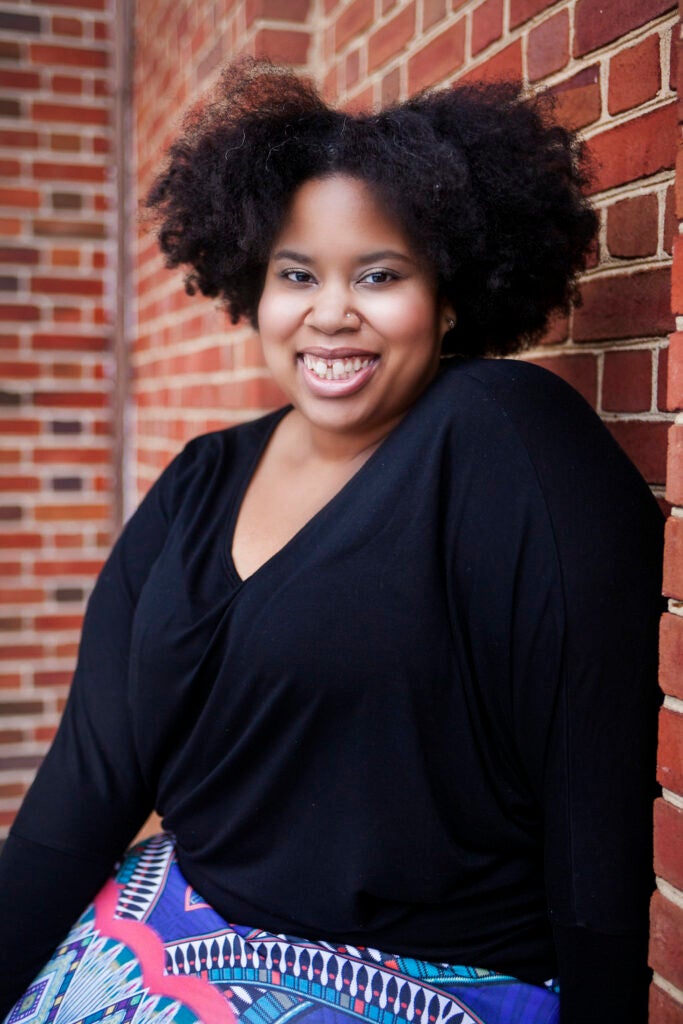
I am a Black woman raised by Black communities in southeastern Wisconsin formed from legacies of the Great Migration. Technology and popular culture transported me from my small town into a world where I could explore various aspects of my identity. This ultimately brought me to my research on Black digital cultures, fandom, and social media usage.
In Their Own Words: Reflections on First-Year Seminar Experiences
My First-Year Seminar changed my career trajectory for the better. The seminar structure of the course made it so that our discussions were collaborative, where I knew every peer not only by name, but who they were as people. We worked together to conduct research in the Georgetown community while exploring what education means today. It allowed me to see the world through the eyes of others. I am so grateful that I took a chance on my First-Year Seminar!
– Livi Ray, C’28
From bonding with my peers over book discussions to creating a virtual art gallery for my final project, my First-Year Seminar was incredibly valuable in shaping my first semester at Georgetown. My professor was not only incredibly engaging but also fostered a community of care within the classroom. The class was an opportunity to express my voice, be a part of a group who shares my passions, and to engage with a professor on a more nuanced basis.
– Isabella Trewhella C’28
Teaching a First-Year Seminar is the perfect teaching experience. I get to choose a topic that I find fun, important, and interesting, I get to know smart and motivated students, and I have the opportunity to form a supportive and friendly community with them. Working with them as they develop their skills and find their path at the start of their college career is enormously rewarding.
Prof. Tommaso Astarita, Department of History
My Ignatius Seminar with Professor Elie was by far the most interesting and rewarding class I took in my first semester at Georgetown. It was demanding and challenging, and unlike any of my other courses. Professor Elie took the time to get to know each one of us personally, and the discussion-based classes gave everyone the opportunity to (and challenged us to) contribute our own knowledge and insights, and help guide the class discussion. I would highly recommend the First-Year Seminars to any freshman who are looking for a rewarding challenge and a unique experience.
– Nathan Brown, C’28
I’m so happy I applied to be a member of the 2024-25 Hager Scholars! The close-knit community has provided friendship and continuity over my first year by connecting me with people who are as passionate about languages and literatures as I am. The guest speakers and field trips have really broadened my perspective on the incredible cultural and linguistic diversity that exists in our world as well as introduced me to career and research possibilities. I’d recommend the Hager Scholars program to anyone who’s interested in studying languages or related fields alongside a lovely community of like-minded peers!
– Rosabel Liu, CAS ’28